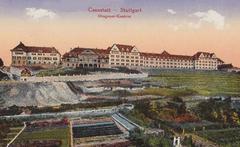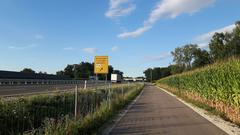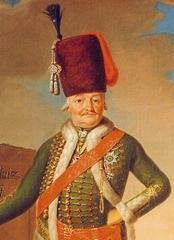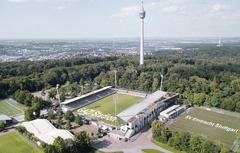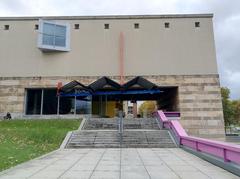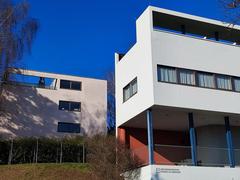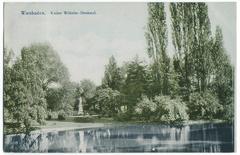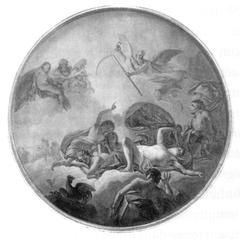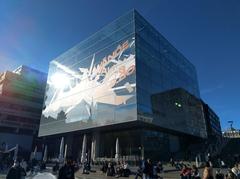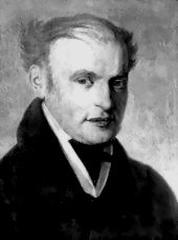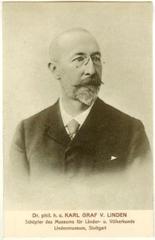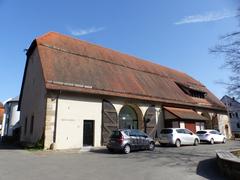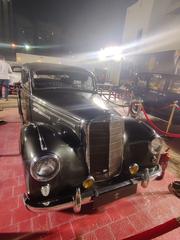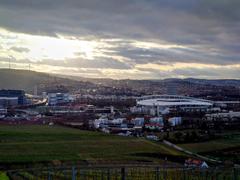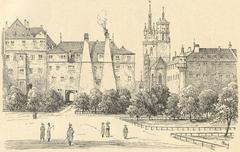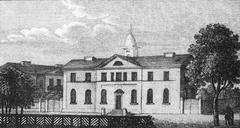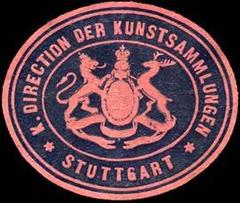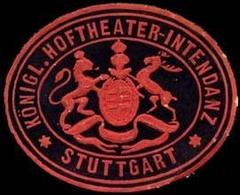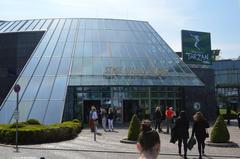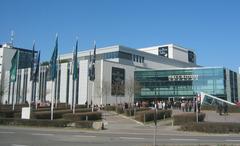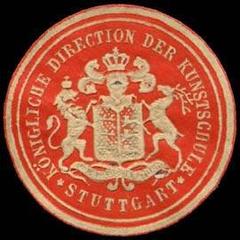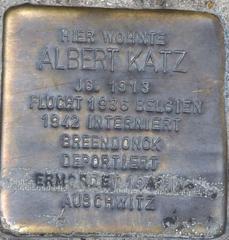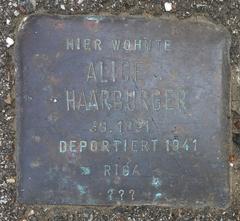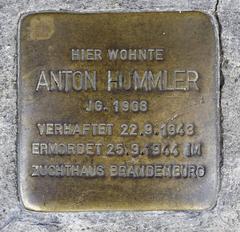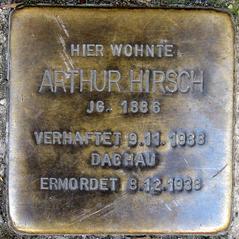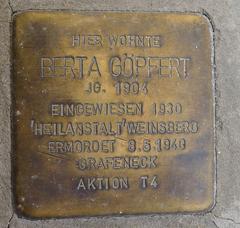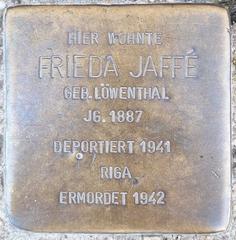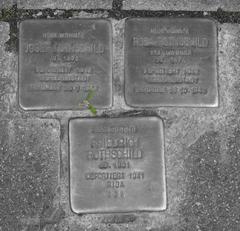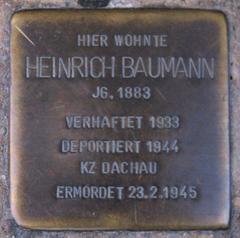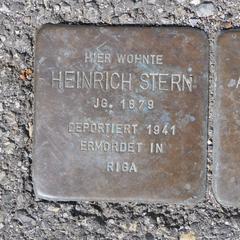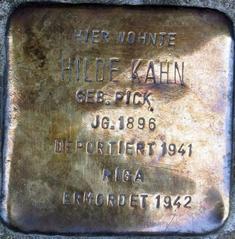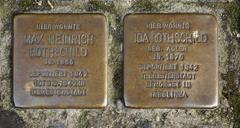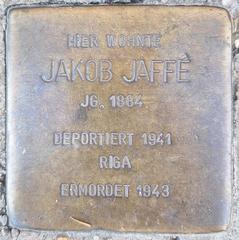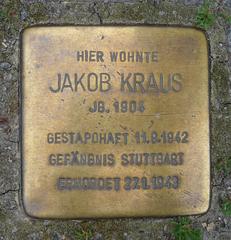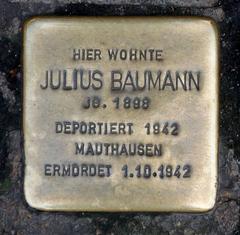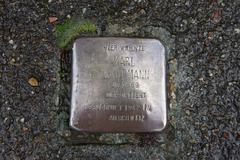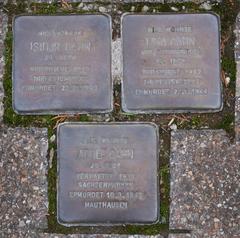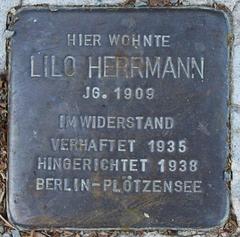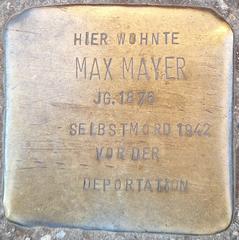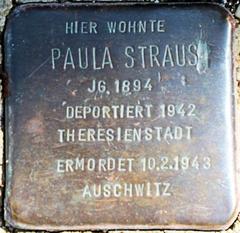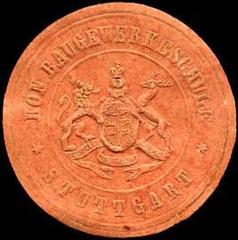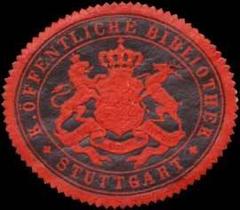
Stuttgart Clinic Visiting Hours, Tickets, and Historical Significance Guide
Date: 03/07/2025
Introduction to Stuttgart Clinic and Its Importance
Stuttgart Clinic (Klinikum Stuttgart) is the largest maximum care hospital in Baden-Württemberg, Germany, and a key pillar of advanced healthcare in the region. The institution was formed by merging several historic hospitals: the Katharinenhospital, Bad Cannstatt Hospital, and the Olgahospital—the latter being Germany’s largest children’s hospital. Together, these facilities reflect over a century of medical progress and community service. The Katharinenhospital, as the clinic’s flagship, has continually evolved to address Stuttgart’s changing healthcare needs, expanding its reach and services over time.
The clinic is currently undergoing a major modernization, highlighted by the construction of a new medical campus in Stuttgart-Mitte. With an investment of over €800 million, this redevelopment is the largest in Stuttgart’s history. A cornerstone of this project is the Stuttgart Cancer Center (SCC) – Tumor Center Eva Mayr-Stihl, which is at the forefront of personalized cancer treatment. Supported by the Eva Mayr-Stihl Foundation, the SCC is expected to serve approximately 11,000 new cancer patients annually, further cementing the clinic’s leadership in oncology and innovative medicine (eva-mayr-stihl-stiftung.de).
Strategically located in Stuttgart-Mitte, the clinic is easily accessible and integrated with the city’s infrastructure. It offers extensive inpatient and outpatient care, emergency services, and played a leading role during the COVID-19 vaccination campaigns.
This comprehensive guide explores the clinic’s history, significance, visitor information, and practical tips for patients, visitors, and healthcare professionals. For the latest details, visit the official Stuttgart Clinic resources (eva-mayr-stihl-stiftung.de).
Table of Contents
- Introduction
- Founding and Early Development
- Expansion and Modern Medical Services
- Visiting Hours and Patient Information
- Architectural Significance and Location
- Role in the Community and Public Health
- Partnerships and Philanthropy
- Frequently Asked Questions (FAQ)
- Conclusion
Founding and Early Development
Stuttgart Clinic’s origins are rooted in the amalgamation of three major hospitals: Katharinenhospital, Bad Cannstatt Hospital, and Olgahospital. This unification was designed to streamline healthcare delivery, improve patient outcomes, and expand the range of medical services available in the region (eva-mayr-stihl-stiftung.de). The Katharinenhospital, at the heart of the clinic, has been serving the city for more than 100 years, constantly adapting to meet the healthcare demands of Stuttgart’s growing population.
Expansion and Modern Medical Services
Since 2018, Stuttgart Clinic has been transformed through significant modernization efforts, including the construction of a new Katharinenhospital building. With a budget exceeding €800 million, this is the largest construction project in Stuttgart’s history, bringing together a wide array of specialties and advanced medical technologies in a single, integrated campus (eva-mayr-stihl-stiftung.de).
A highlight of this expansion is the Stuttgart Cancer Center (SCC) – Tumor Center Eva Mayr-Stihl, dedicated to personalized cancer medicine. Scheduled for completion in 2024, the center will span 7,000 square meters and treat around 11,000 new cancer patients each year. The Eva Mayr-Stihl Foundation has been instrumental in funding and supporting this state-of-the-art facility (eva-mayr-stihl-stiftung.de).
Visiting Hours and Patient Information
- Visiting Hours: The typical visiting hours are from 2:00 PM to 8:00 PM daily. Some departments, such as intensive care units, may have different schedules. It is advisable to confirm with the specific ward before visiting.
- Appointments: Outpatient services are available by appointment. Patients should contact the relevant department or use the clinic’s website to schedule visits.
- Visitor Access: There is no ticketing system for visitors; access is monitored for security and patient privacy.
- Accessibility: The entire clinic is fully accessible to people with mobility impairments, offering wheelchair access, elevators, and assistance services.
- Parking and Directions: Located in Stuttgart-Mitte, the clinic is accessible by public transport (bus and tram) and by car. Multiple parking garages are available, with reserved spaces for patients and visitors.
Architectural Significance and Location
The new Stuttgart Clinic campus is a showcase of modern architecture, blending historical elements with contemporary design. Emphasizing natural light, open spaces, and sustainable materials, the buildings are situated near Stuttgart landmarks such as the Lindenmuseum and the University of Stuttgart, ensuring seamless integration with the city’s urban landscape (eva-mayr-stihl-stiftung.de).
Role in the Community and Public Health
Employing about 7,000 staff—including over 2,700 nurses and more than 1,000 physicians—Stuttgart Clinic cares for approximately 90,000 inpatients and 600,000 outpatients annually. Its emergency services handle over 100,000 cases each year, and the clinic sees more than 3,600 births annually (eva-mayr-stihl-stiftung.de). The clinic also played a pivotal role during the COVID-19 pandemic, operating one of the region’s largest vaccination centers.
Partnerships and Philanthropy
The Eva Mayr-Stihl Foundation is a major philanthropic partner, contributing over €10 million to the development of the Stuttgart Cancer Center and advancing personalized medicine initiatives (eva-mayr-stihl-stiftung.de).
Frequently Asked Questions (FAQ)
Q: What are the visiting hours at Stuttgart Clinic?
A: Typically 2:00 PM to 8:00 PM, but please verify with the specific department.
Q: How do I book an outpatient appointment?
A: Contact the relevant department or use the clinic’s official website.
Q: Is parking available for visitors?
A: Yes, several parking garages are located near the clinic.
Q: Is the clinic accessible for people with disabilities?
A: Yes, the clinic is fully accessible and offers assistance services.
Q: Where is the Stuttgart Cancer Center located?
A: It is part of the new medical campus in Stuttgart-Mitte, close to the University of Stuttgart.
Conclusion
Stuttgart Clinic exemplifies a successful fusion of historical legacy and contemporary medical innovation. Its comprehensive care, patient-friendly infrastructure, and commitment to public health make it a central institution in the region. The ongoing modernization, highlighted by the Stuttgart Cancer Center, further strengthens its role as a leader in advanced healthcare. For up-to-date visitor information, appointments, and service details, consult the official Stuttgart Clinic website (eva-mayr-stihl-stiftung.de).
Discovering Stuttgart’s Schlossplatz: The Heart of the City’s History and Culture
Introduction
Schlossplatz, Stuttgart’s central square, is the city’s most prominent landmark—a vibrant meeting point that reflects both historical depth and contemporary life. Encompassed by impressive architecture such as the New Palace (Neues Schloss), historic churches, and bustling shopping streets, Schlossplatz offers visitors an immersive experience of Stuttgart’s heritage and culture.
History of Schlossplatz
Schlossplatz was originally the site of the royal palace built in the 18th century. The New Palace, constructed between 1746 and 1807, served as the residence of the kings of Württemberg. Severely damaged in World War II, the palace was painstakingly restored and remains a testament to Stuttgart’s resilience and architectural heritage.
Cultural Significance
More than just a historic site, Schlossplatz is Stuttgart’s cultural epicenter. The square hosts a range of events throughout the year, notably open-air concerts, festivals, and the Stuttgart Christmas Market. Its expansive lawns and fountains offer a welcoming communal space for relaxation and celebration.
Visitor Information
- Opening Hours: Schlossplatz is an open public square accessible 24/7 year-round.
- Tickets and Tours: Access to the square is free. Guided tours of the New Palace and nearby museums may require tickets, available via the Stuttgart Tourism Office or official websites.
- Accessibility: The square is wheelchair-friendly, with smooth pathways and nearby public transport (U-Bahn Schlossplatz station).
- Facilities: Amenities include public restrooms, seating, cafés, and information kiosks.
Travel Tips
- Visit in spring or summer to enjoy outdoor events and the lush gardens.
- Early mornings and weekdays offer a quieter atmosphere.
- In summer, don’t miss the evening fountain and light shows.
Nearby Attractions
- New Palace (Neues Schloss): Explore the restored royal residence and its exhibitions.
- Kunstmuseum Stuttgart: Adjacent modern art museum.
- Old Castle (Altes Schloss): Home to the Württemberg State Museum.
- Königstraße: Stuttgart’s main shopping avenue.
FAQs
Q: Is Schlossplatz suitable for families?
A: Yes, the open spaces and parks are family-friendly.
Q: Are pets allowed?
A: Dogs are welcome but must be leashed.
Q: Are English-language tours available?
A: Yes, through the Stuttgart Tourism Office.
Q: What major events are held at Schlossplatz?
A: The Stuttgart Christmas Market, summer concerts, and various festivals.
External Links
Stuttgart Castle: A Historical Landmark in the Heart of Stuttgart
Stuttgart Castle (Schloss Stuttgart) is a striking Renaissance palace that traces the city’s evolution from medieval roots to modern metropolis. Originally built as a hunting lodge in the 10th century, it was transformed into a ducal residence during the Renaissance and became a key political and cultural center. Although damaged in World War II, the castle has been meticulously restored and now houses parts of the State Museum of Württemberg.
Visiting Hours and Tickets
- Hours: Daily, 10:00 AM – 6:00 PM (closed on major holidays)
- Tickets: Adults €8, reduced €5, children under 18 free. Family and group rates available.
Tickets are available online (official Stuttgart Castle website) and at the entrance. - Guided Tours: Offered daily in German and English, with audio guides in multiple languages.
Travel Tips and Accessibility
- Transport: Tram lines 1, 4, 14 (Schlossplatz stop); multiple buses.
- Parking: Nearby garages.
- Accessibility: Wheelchair accessible with ramps and elevators. Assistance upon request.
Special Events
Stuttgart Castle hosts concerts, exhibitions, and seasonal markets throughout the year. Special night tours illuminate the castle’s legends and history.
FAQs
Q: Are there discounts for groups?
A: Yes, for groups of 10+ with advance booking.
Q: Can I take photos?
A: Photography is permitted, except with flash or tripods.
Q: Is there a café on site?
A: Yes, serving refreshments and light meals.
Q: Are pets allowed?
A: Only service animals.
Image Gallery and Virtual Tour
Explore visual highlights and a 360-degree virtual tour on the official website.
Additional Resources
Discover the Stuttgart TV Tower: A Landmark of Innovation and Panoramic Views
The Stuttgart TV Tower (Fernsehturm Stuttgart), opened in 1956, is the world’s first television tower built from reinforced concrete—a pioneering structure that inspired similar towers globally. Rising 217 meters, it offers unmatched panoramic views and is a symbol of Stuttgart’s post-war innovation and cultural vibrancy.
Visitor Information
- Tickets: Adults €9.50, children (6-14) €5.00, family and group discounts available.
- Hours: April–October: 9:00 AM–8:00 PM; November–March: 10:00 AM–6:00 PM; closed Jan 1 and Dec 24–25.
- Accessibility: Fully accessible with elevators and assistance for special needs.
- Getting There: Bus lines 92 and 98 to ‘Fernsehturm’ stop; limited parking nearby.
- Café: Observation deck café with panoramic views.
Unique Features
- Guided tours on weekends and holidays.
- Seasonal light shows and cultural events.
- Free Wi-Fi on the observation deck.
FAQs
Q: Are children allowed?
A: Yes, children aged 6+ are welcome. Family tickets offered.
Q: Is the tower open in bad weather?
A: Generally yes, except during severe conditions.
Q: Pets?
A: Only service animals permitted.
Visuals
Additional Resources
Summary of Visiting Stuttgart Clinic and Key Information
Stuttgart Clinic exemplifies the convergence of historical legacy and modern medical excellence. Its roots in venerable institutions and its recent transformation underscore its status as a leading healthcare provider, particularly through the Stuttgart Cancer Center’s advanced approach to oncology. The clinic’s commitment to accessibility, patient welfare, and integration into the Stuttgart-Mitte district enhances its community role.
Visitors and patients benefit from accessible facilities, clear visiting policies, and convenient transportation. The clinic’s substantial staff and patient volume reflect its regional significance in both routine and emergency care, as well as its adaptability during public health challenges like the COVID-19 pandemic.
Philanthropic partnerships, notably with the Eva Mayr-Stihl Foundation, continue to drive innovation and excellence at the clinic. Whether seeking treatment, visiting family, or exploring its heritage and architecture, Stuttgart Clinic provides a comprehensive and supportive environment.
For the most current updates and resources, visit the official Stuttgart Clinic website (eva-mayr-stihl-stiftung.de).
References and Further Reading
- Stuttgart Clinic: Visiting Hours, Cancer Center, and Comprehensive Medical Services in Stuttgart, 2024, Eva Mayr-Stihl Stiftung (https://eva-mayr-stihl-stiftung.de/en/news/laying-cornerstone-new-stuttgart-cancer-center-scc-tumor-center-eva-mayr-stihl)
- Spatenstich Neues Tumorzentrum am Klinikum Stuttgart, 2024, Eva Mayr-Stihl Stiftung (https://eva-mayr-stihl-stiftung.de/en/news/spatenstich-neues-tumorzentrum-am-klinikum-stuttgart)

